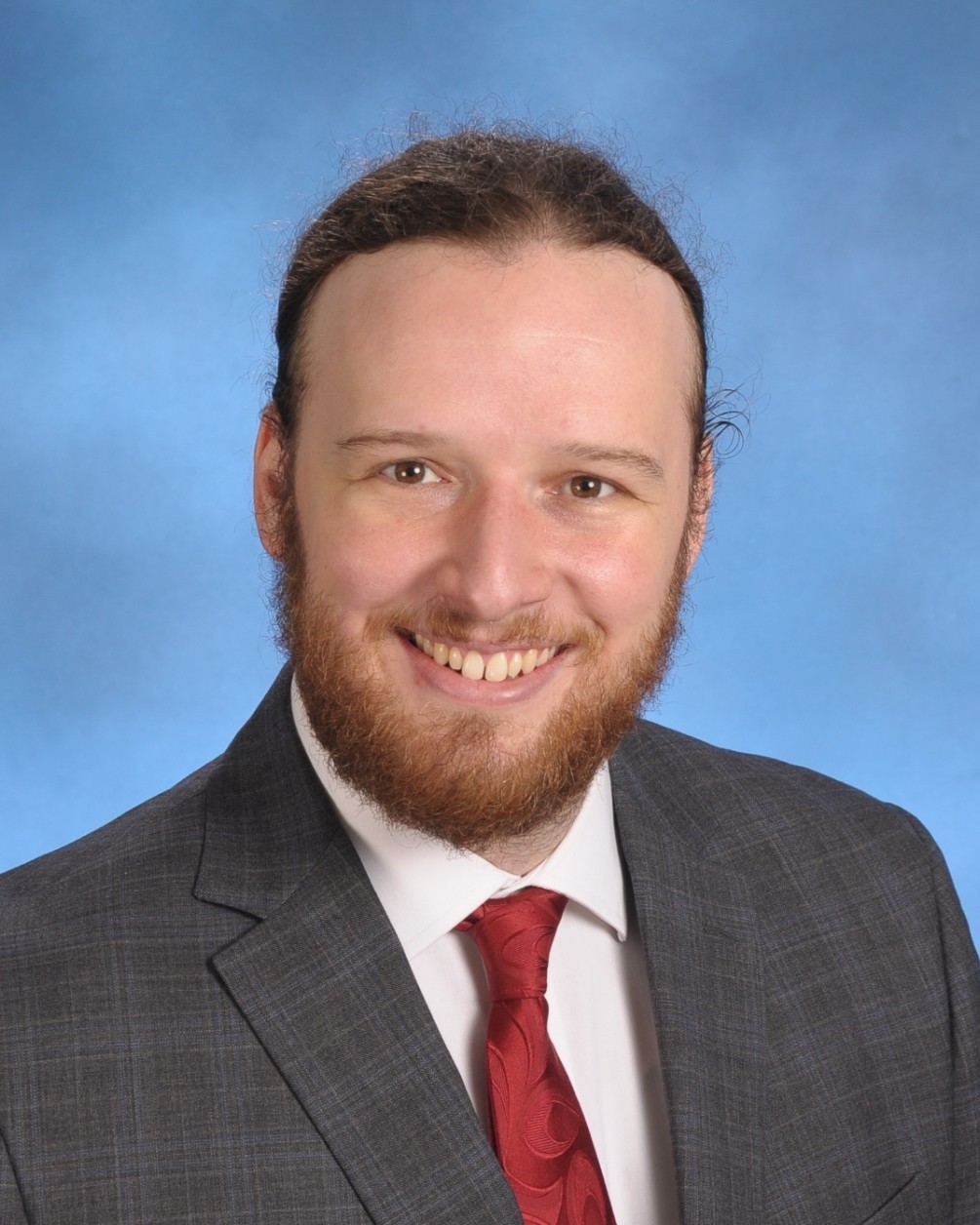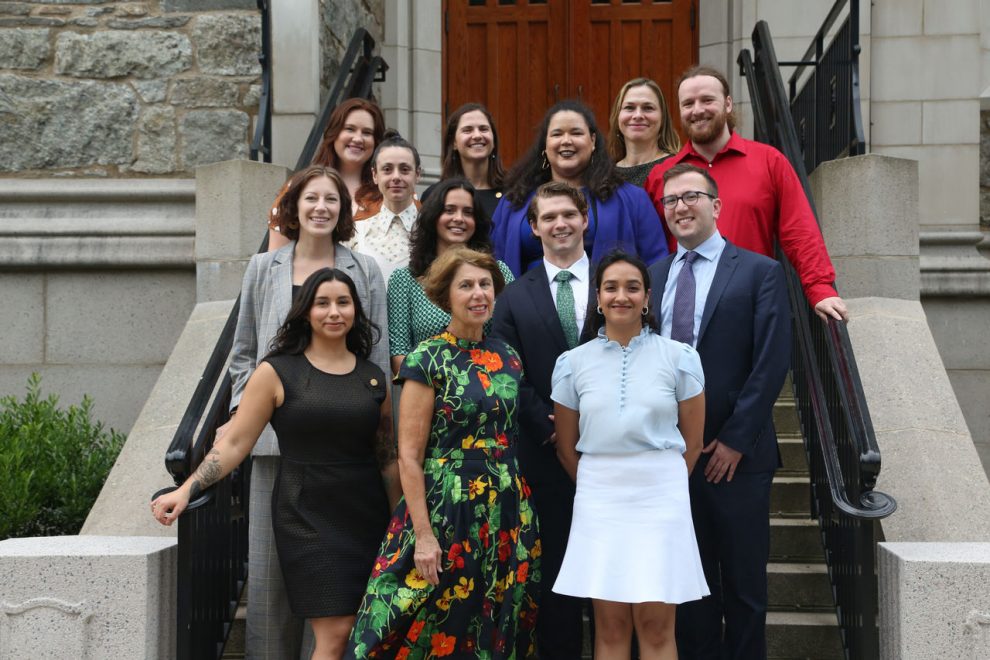A Penchant for Public Policy
Ethan FitzGerald (’25) studies the intersection of science and law to advance public good.

A Penchant for Public Policy
Ethan FitzGerald (’25) studies the intersection of science and law to advance public good.
In spring 2020, when quarantine procedures shut down the lab where Ethan FitzGerald (’25) was researching infectious diseases and pulmonary infections, he began analyzing public datasets relating to COVID-19, pivoting his work to focus on the pandemic and the pressing policy issues facing the world.
Public policy and health science were always at the forefront of FitzGerald’s mind. Raised in Arlington, Mass., he graduated from Wheaton College with bachelor’s degrees in biochemistry and political science. “When I got to the end of my undergrad experience, I felt like I was facing this crossroads where I had to pick between these two passions,” he says.
Although he ultimately chose to pursue his PhD before law school—earning his PhD in molecular biology, cell biology, and biochemistry at Brown University, drawn to the subject for its social, societal, and national security implications—the pandemic demonstrated the need for a dual skillset in science and legal expertise in policymaking. “The initial plan was to be in science for a while before transitioning into public policy and government administration,” FitzGerald says. “Seeing how big of a struggle it was for a lot of state governments and the federal government to respond effectively to COVID just made me want to do it faster.”
It was through his interest in legislation that FitzGerald was introduced to the Rappaport Fellows Program in Law and Public Policy, which provides select Massachusetts-based law students a first-hand look at the careers of public policy lawyers and the influence they have on the quality of life in their communities. Promoted by BU Law’s Career Development Office, FitzGerald sat in on an information session with Program Executive Director Lissy Medvedow and instantly knew it was what he was looking for.
“[The fellowship] was the first opportunity that I had to really be with a group of people who had that exact same single-minded focus on helping people through government work,” he says. “We were able to meet and talk with government officials, like Mayor Michelle Wu and the chief justice of the Massachusetts Supreme Judicial Court, Kimberly S. Budd, and ask them probing questions about how they’re making government work for people. That was one of the most driving and inspiring moments for me.”

As part of his fellowship, FitzGerald was a summer intern with the Massachusetts Attorney General’s Office (AGO) in the Health Care Division of the Health Care and Fair Compensation Bureau. In that role, FitzGerald experienced the lifecycle of a government investigation and civil enforcement actions and was able to work on several Chapter 93A cases that regulate business practices for consumer protection in the healthcare space, including the Massachusetts AGO’s work to hold companies that exacerbated the opioid crisis in Massachusetts accountable. “Getting to be a part of a government agency that’s doing that sort of regulatory oversight crystallized for me that I am doing the thing that I want,” he says. “You can feel the sense of mission and purpose in discussing the cases that we’re working on.”
As part of his internship, FitzGerald investigated violations within the healthcare space prior to enforcement, looking at individual consumer stories and how they were directly impacted by bad practices, not only as a result of big-picture policy, but everyday infractions. “I was able to contribute to real cases, cases that were ongoing, that directly impact people. That gave me a sense of purpose and significance.”
FitzGerald’s experience at the AGO’s office allowed him to connect the issues he studied to real-time cases and legislation. “The really amazing thing about state-focused public service is that you’re so much closer to the actual people that are impacted by the government actions and policies,” he says. “Being in these regulatory spaces gives you that perspective of, how can we design the rules and regulations for our government to really help people?”
Even if it was a small part of a much bigger picture, it was contributing to the effort of protecting the people of Massachusetts, of vindicating individual’s rights, and making the government more effective. That’s why I wanted to come to law school.
Although he entered law school with a very specific goal in mind and was drawn to BU Law for its strong health law program, FitzGerald’s courses, peers, and professors have inspired him to explore many other areas of the law. “I took administrative law with Professor Beermann and that was really spectacular,” FitzGerald says. “We asked how we empower the government to actually help people through not just the legislature and the office of a president, but through administrative agencies to solve problems that are hurting people every day. That was what made me want to go to law school. And so being in that class and learning about the underlying mechanisms of our government that actually enable that was really gratifying.”
FitzGerald is also on the Public Interest Law Journal staff, where he writes about fourth amendment privacy issues and digital privacy. “When I talked to folks who had graduated from BU Law, they talked about how it was a really special community where they got really amazing training,” he says. “They felt like it made them ready to go out and be impactful in the spaces where they wanted to end up.”
Looking towards his 3L year and entering the legal field with his JD and PhD completed, FitzGerald is excited for the opportunity to make lasting change and enact policies that will help people. “Every day when I went into the AGO, I was doing things that actually mattered and were impacting people on a day-to-day basis,” he says. “Even if it was a small part of a much bigger picture, it was contributing to the effort of protecting the people of Massachusetts, of vindicating individual’s rights, and making the government more effective. That’s why I wanted to come to law school.”